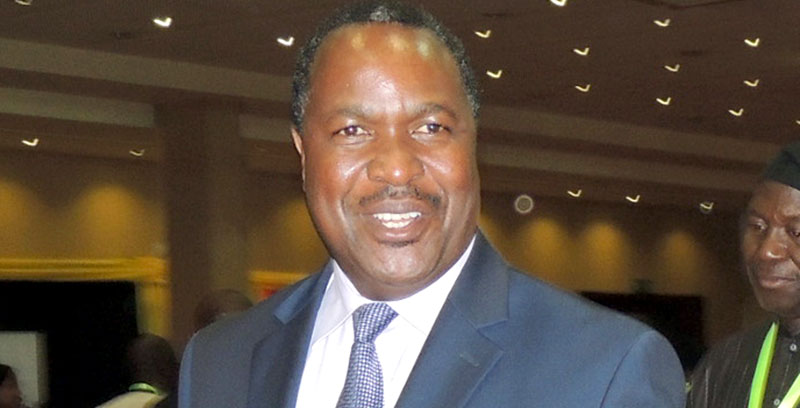The debate on transforming Africa’s agriculture has received new and interesting perspectives that emphasize the role of forming partnerships that support the goal of transforming farmers into businesses that are motivated by profit.
The call came in different presentations and discussions at the first high-level conference on Application of Science, Technology and Innovation that was held at Speke Resort Munyonyo last week. The conference attracted over 500 participants from across Africa, Asia, Europe and the United States.
Dr. Denis Kyetere, the Executive Director of the African Agricultural Technology Foundation (AATF) argued that although partnerships have existed between governments and development partners, they need to be strengthened, with particular emphasis on involving and supporting the private sector.
Although the government’s policy on Agriculture in Uganda has slowly shifted from food security to wealth creation, participants argued that the transition is not fast enough which explains why agricultural productivity remains low.
Kyetere called for the development of partnerships along the value-chain of major crops to increase productivity but also boost job creation.
“It’s agriculture that will lead Sub Saharan Africa to achieve its ambition of industrialisation. However, crop and livestock yields remain low. There is need for increased investments in climate resilient and disease tolerant varieties,” said Kyetere.
Kyetere, who is a former Director General of the Uganda’s National Agricultural Research Organisation (NARO) observed that the private sector’s involvement and promotion, would accelerate the adoption of new and modern technologies that would spur increased productivity, job creation and efficiency.
He hailed the role that partnerships with international funding organisations such as the Rockefeller and the Bill and Melinda Gates Foundations as well as research firms like Monsanto, BASF and the national agricultural research programmes are playing in boosting food production in Africa.
Mamadou Biteye, the Managing Director of the Rockefeller Foundation in Africa however urged promoters of modern agricultural science to ensure that they reach the intended beneficiaries – who are small-holder farmers.
The conference that ran under the theme: Integrating the path in Africa’s agricultural Transformation, stressed the need for African countries to invest in science and technology as the only path that will lead the continent to confront the many challenges of food security, unemployment, and climate change.
The call for intensifying the use of modern agricultural technology – especially amid rising threats to conventional subsistence farming that defines African agriculture. With most farmers detached from each other as well as from other players in the industry such as government, experts argue that smallholder farmers will become even more vulnerable to effects of drought, pests and diseases arising largely from climate change.
At the same time, the rapid increase in population in most African countries, means that the continent has to rely on science to be able to produce more food using the same land and water resources to feed the people.
For Uganda, even with its considerable endowment with arable land, the country suffers from recurrent episodes of hunger. With the effects of climate change feared to get worse in coming years, and a much bigger population, there is real fear that food security will become even more pronounced as a national problem. Last year, the Uganda government had to divert billions of shillings it had budgeted for roads, to provide emergency food to nearly 4 million people across the country that were facing starvation.
The passage of the Biosafety Act 2017 this week, perhaps answers many of the calls raised by scientists this week.
What remains is to ensure that the products of biotechnology benefit from the advantages of the partnerships between development partners, the public sector, farmers and the private sector as a whole.
Fortunately, Kyetere noted that the existing partnerships between AATF, donors, already has results in terms of higher-yields and greater tolerance to diseases and drought.
He cited a donation of genes responsible for pest and drought resistance in maize by the American company Monsanto, as having greatly contributed, with support from other players, to a three-fold increase in maize production in East Africa.
Kyetere further revealed that partnerships with other international companies such as BASF and brokered by AATF have helped to optimize nitrogen intake in rice enabling farmers to achieve higher yields in soils that are deficient in the essential component.
The head of Rockefeller Foundation in Africa Mamadou Bitaye warned however that African countries will not achieve their objectives of food security let alone industrialise if they don’t accelerate investments in science, particularly man-power development as well as Research and Development.








